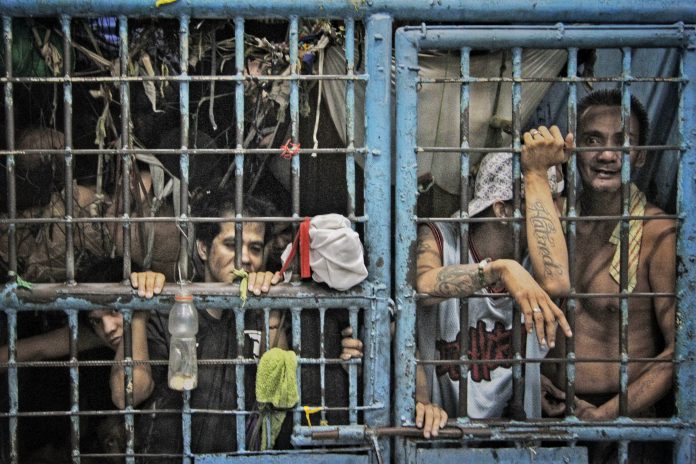Reflection for the Solemnity of the Epiphany of the Lord (02)
Insofar as our proud world is concerned, there is a huge social chasm between those who are striving to be “good,” and those who keep falling short of the mark.
Consider our penal systems. Those who do fall short of the mark, are cast out from our realm of the “sinless and holy.” They are separated and isolated, supposedly meant to undergo a “process of reformation” under a bizarre premise that a painful incarceration will effectuate in them a “change of character,” and prepare them for a useful, future life as “good citizens” such as us.
But in my prison ministry, I realized that the stigma of having been in jail is much more haunting than the actual jail-time. Those who have spent time in prison simply waiting for their cases to be heard in our overcrowded courts but have not been actually convicted, will never be properly welcomed back into society. For not a few, they may even not have any families to return to.
These unfortunate former inmates are literally doomed for the rest of their lives, unable to reach the level of financial prosperity, or to cherish the intimacy of support from loved ones, that the rest of us enjoy and sometimes take for granted. Their punishment has already extended beyond the consequences of their original crime.
We have created a social order in which a single drastic mistake made in one’s life, condemns a person to a cruel downfall from which there is no charitable redemption.
We have therefore not only divided our society into the “haves” and the “have-nots;” we have also contrived the castes of the “blamed” and the “blameless.” Most of us struggle our whole lives, trying to become “blameless” in the eyes of society, and under certain predicaments, we will fight to remain “blameless.” Not a few will use all their possessions, prestige and power to keep from getting blamed, to continuously live in everybody else’s social graces, and to finally die mourned as a “great and righteous person.”
But those who are weak and powerless, poor and ignorant, those who have no names to protect, are our scapegoats. In our unrelenting drive to secure our “blamelessness,” we are ever pointing an accusing finger at those who have no voice to object. We are unjustly blinding ourselves from the reality that we are all sinners in the eyes of God. We must stop thinking that we have no culpability for the human condition.
Deeply reflect upon this: in our desire to rationalize our “blamelessness,” we are at the same time losing our sense of mercy and forgiveness.
Human mercy is to forgive someone who is being blamed for a transgression, from a position of “blamelessness.” However, divine mercy is to forgive someone whom we have come to realize is just as vulnerable as we are. Divine mercy is founded on Christian humility: our genuine compassion emanates from the understanding that there is no sin too great that we are incapable of committing, and that we the “blameless” may possibly be worse than the blamed.
The Epiphany is the revealing of the blamed and the blameless; of the dramatic reversal of who we think we are, and who we actually are; and of the enigmatic paradox that is the Christ. May we be always reminded that Herod though blamed, counted himself among the blameless. May we be always reminded that our Lord though blameless, counted himself among the blamed.
Brother Jess Matias is a professed brother of the Secular Franciscan Order. He serves as minister of the St. Pio of Pietrelcina Fraternity at St. Francis of Assisi Parish in Mandaluyong City, coordinator of the Padre Pio Prayer Groups of the Capuchins in the Philippines and prison counselor and catechist for the Bureau of Jail Management and Penology.
The views expressed in this article are the opinions of the author and do not necessarily reflect the editorial stance of LiCAS.news.









